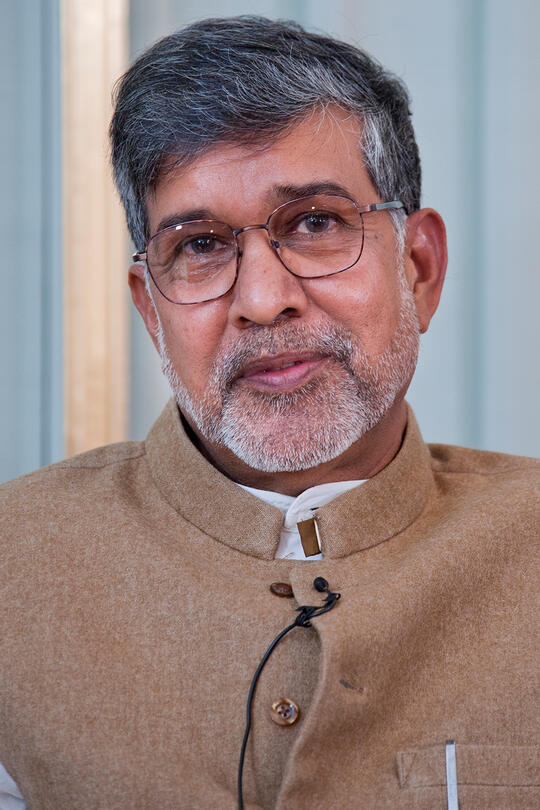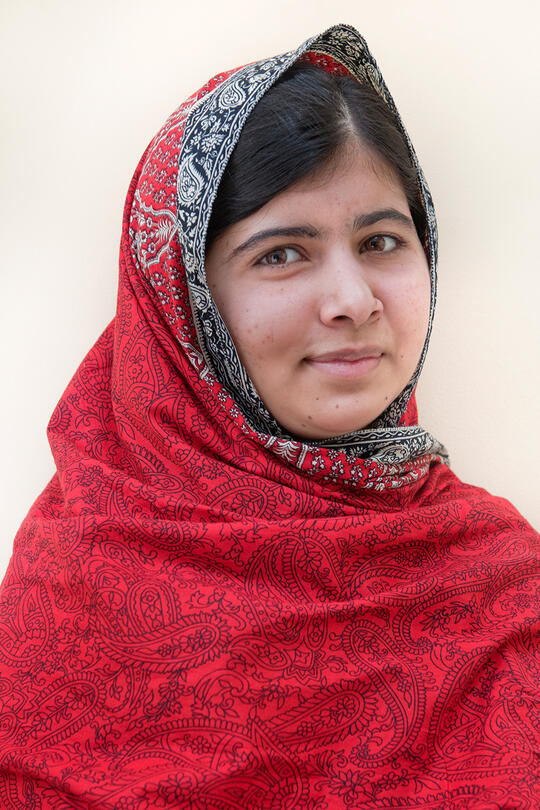2014
Kailash Satyarthi
Malala Yousafzai
for their struggle against the suppression of children and young people and for the right of all children to education

Kailash Satyarthi (1954 -)
India
Fighting child labour and slavery
Children’s rights activist Kailash Satyarthi was awarded the Nobel Peace Prize for “focusing attention on the grave exploitation of children for financial gain”. Another important reason was that he followed the non-violent tradition of Indian independence leader Mahatma Gandhi. The Peace Prize laureate was born to a high-caste family. He completed a degree in electrical engineering, but soon gave up his career and his high-caste name, Sharma. Instead he called himself Satyarthi, which means “seeker of truth”. Satyarthi founded the Save the Childhood Movement (BBA) and the GoodWeave organisation, which certifies carpet manufacturers who do not use child labour in their production. As of 2014, Satyarthi and his colleagues had freed 83 000 children from slavery. In 1998, Satyarthi led a global march against child labour. This protest helped spur the United Nations’ International Labour Organisation (ILO) to adopt a convention protecting children against exploitation and hazardous work.
Malala Yousafzai (1997 -)
United Kingdom